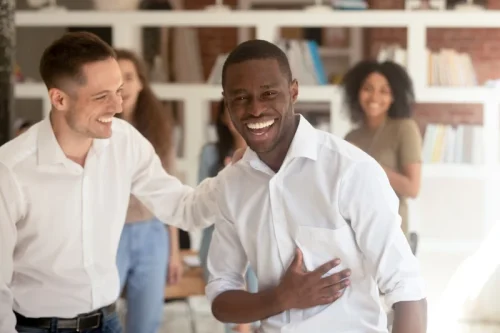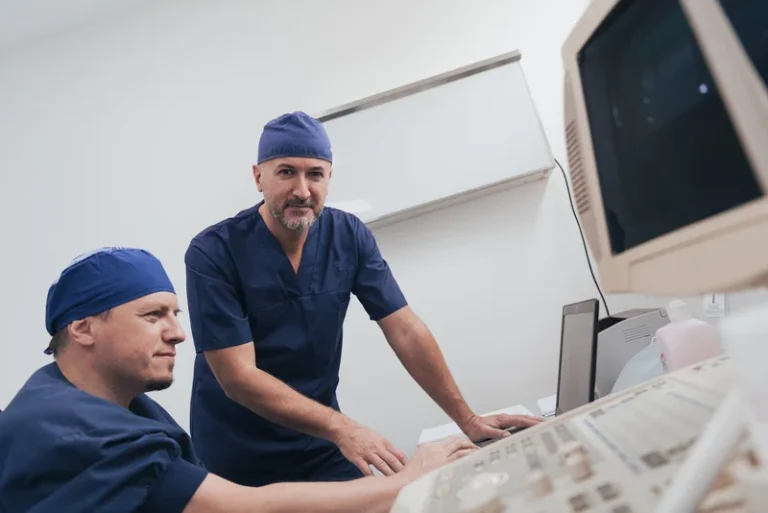
Additionally, I examine the way mental and physical health as well as our relationships with others impact the reasons people drink and their role in maintaining sobriety long-term. Drinking a small glass of wine every night with dinner will not likely cause anxiety. However, drinking two or more units of alcohol in the evenings disrupts your brain chemistry, leading to increased anxiety the following day. A person starts drinking to self-medicate stress and anxiety in their lives.
Why does alcohol cause panic attacks?

Drinkaware UK provides some useful online tools to help you to reduce your alcohol intake. It is also recommended that you consult your GP if you are concerned that you have a drinking problem. The fact that all these physiological changes can cause symptoms so similar to those of a panic attack can trick your brain into having a real one. Up to one third of people will experience at least one panic attack in their lives, according to clinical psychiatrist Cindy Aaronson.
The relationship between alcohol and anxiety
- Alcohol is a diuretic, which means that it causes excessive expulsion of liquid from the body via urination.
- In fact, drinking can change the chemistry of the brain in a way that actually makes anxiety worse.
- Although it’s not uncommon for people to experience one or two panic attacks during their lifetime, some individuals must deal with them regularly.
Similarly, major anxiety disorders usually are apparent before age 30, and although major depressive disorders often have a later onset, they too are frequently observed before age 30. Schuckit and colleagues have studied the rates of psychiatric disorders in COA’s from a variety of perspectives. In this followup study, although the sons of alcoholics were three times more likely to develop alcohol abuse or dependence, they showed no higher rates of major depressive disorders or major anxiety disorders during the followup period. Indeed, several disorders are more likely to be observed in COA’s than in control groups, including conduct problems, such as difficulties with discipline at home or in school (Schuckit and Hesselbrock 1994). However, a prospective followup alcohol rehab of 204 Danish COA’s and control subjects by Knop and colleagues1 demonstrated no differences between the 2 groups by age 20 with respect to either depressive or anxiety disorders.

Quitting Alcohol Timeline: What Happens When You Stop Drinking?
- Many people use alcohol as a way to relax and socialize with others.
- The fact that all these physiological changes can cause symptoms so similar to those of a panic attack can trick your brain into having a real one.
- Additionally, I examine the way mental and physical health as well as our relationships with others impact the reasons people drink and their role in maintaining sobriety long-term.
- “Hangxiety” is the term that has been coined to describe the anxiety that some people feel after drinking alcohol.
- Pay attention to how you feel while you’re drinking and afterward.
- At the center of Dr. Lin’s clinical approach is a strong emphasis on establishing trust and using a collaborative approach to help patients develop an individualized and cohesive plan so that they are able to achieve their goals.
Ultimately, you’ll have to quit drinking (even temporarily) and make big lifestyle changes to better manage your anxiety. And we might feel better for an hour or so, but then all those negative feelings come pouring back and round and round we go. I joked at the time that I had OCD moments, but I now realize that I was in the early clutches of a full-blown anxiety disorder.
Are Alcohol-Induced Panic Attacks a Sign of Addiction?

It is true that alcohol can help with anxiety, at least temporarily, but it can also make it worse in the long run and cause serious panic attacks. While it is normal to feel anxious after heavy drinking, when alcohol-induced panic attacks become a common occurrence, it is a sign of a serious problem. Though drinking can temporarily blunt feelings of anxiety, this isn’t a suitable method to manage anxiety (or any mental health condition).
While the term may be informal, the science isn’t—there’s plenty of data to explain this experience. If severe anxiety or panic attacks are a problem for you, make sure you get proper nutrition and exercise. Psychotherapy and mindfulness meditation can help you deal with anxiety.

- It signals the kidneys to take in more fluid and produce urine, increasing how much you urinate (pee).
- The reality is that alcohol can actually make compulsions more intense.
- Drinking alcohol can have serious consequences if you’re being treated for anxiety.
It’s not unusual for someone to wake up after a night of drinking feeling social embarrassment and regret. Some of the main effects of alcohol intoxication involve disinhibition, increased impulsivity (loss of self-control), and behaviors focusing on current thoughts, feelings, or emotions without regard for social norms. If you are not struggling with alcohol addiction, cutting out drinking is more of a personal choice. Hypersensitivity is when a person is so sensitive to changes in their body that they can’t help but notice and be affected by them.
- Cutting out alcohol will help you cope better, and should reduce the likelihood of experiencing a panic attack, but it won’t stop them altogether.
- Poor or limited sleep causes grogginess and irritability, which can lead to feelings of depression or anxiety.
- The more you drink the greater your tolerance for alcohol – meaning you need to drink more alcohol to get the same feeling.
Learn effective strategies to cope with hangxiety, the anxiety experienced after alcohol consumption. While GABA alcohol and anxiety regulates brain activity and the nervous system, preventing either from becoming overstimulated, glutamate is an excitatory neurotransmitter. Although glutamate is imperative to cognitive function, Goldberg says that increased levels can translate to feelings of anxiety. If you experience a panic attack, even one not induced by alcohol, first focus on taking deep, slow breaths. Find a safe, quiet, comfortable space to sit down and try to remind yourself that the attack is temporary and will pass.

